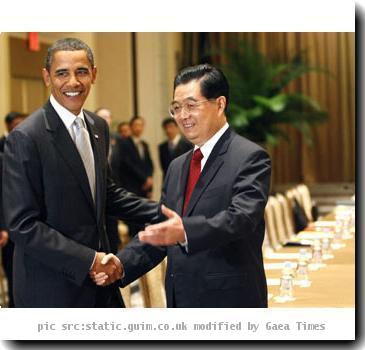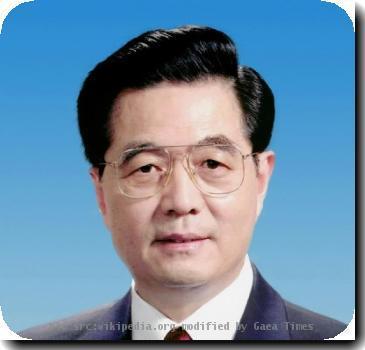Afghanistan, China sign economic agreements during Afghan president’s visit to Beijing
By Christopher Bodeen, APWednesday, March 24, 2010
Afghanistan, China sign economic agreements
BEIJING — The presidents of Afghanistan and China oversaw the signing of new agreements Wednesday aimed at strengthening the Afghan economy as a step toward combating the Taliban and achieving political stability.
The signing followed talks in Beijing between Hamid Karzai and Hu Jintao, who said Karzai’s visit would help “take our comprehensive and cooperative partnership to a new level” — a reference to China’s role as a source of aid, investment and diplomatic support.
The pacts covered economic cooperation, technical training and the granting of preferential tariffs for some Afghan exports to China. Details were not disclosed.
Karzai has been seeking to establish himself as a regional political figure with stature and independence, partly in response to new criticism from the U.S., Britain and other foreign partners over corruption, cronyism and electoral fraud.
Such issues are not expected to be raised in his talks with Chinese leaders, who oversee a one-party Communist state that brooks no internal dissent or outside criticism.
China opposed the 1980s Russian occupation of Afghanistan and has pledged development assistance for Karzai’s government and boosted trade across their narrow border high in the remote Pamir Mountains.
China is a major source of consumer goods for Afghanistan. But while growing, two-way trade totaled only $155 million in 2008, according to Chinese figures.
Highlighting the importance of the dialogue between the two nations, Karzai’s national security adviser met for three days with Chinese officials ahead of the president’s arrival Tuesday, China’s Foreign Ministry said.
The contents of Rangin Dadfar Spanta’s discussions weren’t known, although ministry spokesman Qin Gang said he met with Foreign Minister Yang Jiechi.
China, which professes to have a noninterventionist foreign policy, has limited its involvement in Afghanistan to diplomatic and humanitarian support, some trade, and investment in the minerals sector.
However, Afghanistan’s woes incorporate issues that Beijing considers direct threats to its stability: Islamist extremism spreading to China’s Muslim region of Xinjiang, the long-term presence of U.S. and NATO forces on its borders, cross-border drug smuggling, and the deepening involvement of India, with which China shares a disputed border and a sharpening rivalry.
China alleges that Xinjiang separatists have received training and support in Afghanistan and has demanded the return of Chinese citizens captured there.
Despite that, Beijing is not known to have openly interposed itself between the United States, Afghanistan, and longtime ally Pakistan — where some officials are believed to covertly support some elements of the Afghan Taliban insurgency.
A Chinese company pledged $3 billion to tap one of the world’s largest unexploited copper reserves at Aynak in Afghanistan, and is favored to win the rights to iron deposits at Hajigak when bids are considered this year.
Those projects have dragged on, however, amid continuing Taliban attacks. U.S. officials familiar with intelligence reports have also claimed that Afghanistan’s then-minister of mines, Muhammad Ibrahim Adel, allegedly accepted a $20 million bribe to award the Aynak contract in late 2007 to China Metallurgical Group Corp.
Both deposits offer a potential financial boon for an impoverished country mired in war, but require the construction of roads, railways, and processing plants in areas still roiled by the insurgency.
Karzai’s delegation includes his foreign and defense ministers along with 20 leading businesspeople.
Tags: Afghanistan, Asia, Beijing, Central Asia, China, East Asia, Greater China, Hu Jintao, North America, South Asia, United States

